Think living abroad is only for the rich? Think again. For many people, $2,000 per month can stretch surprisingly far in destinations outside the U.S. In fact, a modest budget in the right country can unlock a comfortable lifestyle complete with dining out, travel, and even some luxuries. This guide is for remote workers, retirees, solo travelers, and adventure-seekers dreaming of a life overseas without a millionaire’s budget. Before you start packing, keep in mind that exchange rates fluctuate, local prices can change, and visa requirements vary – always double-check the latest info. That said, if you’re looking to maximize your money and quality of life, here are 10 countries where you can live comfortably on $2,000 a month or less.
Mexico
Avg Monthly Budget
Estimated Budget: Around $1,500/month for a single person covers a comfortable life in Mexico. This might include:
Rent: ~$600 for a furnished one-bedroom in many cities (less outside hotspots).
Groceries & Dining: ~$300 (local markets and street tacos are budget-friendly).
Utilities & Misc: ~$200 for electricity, gas, mobile plan, etc.
Even with ~$1,500, many expats find they can enjoy regular restaurant meals and the occasional getaway. Couples often live well on $2,000 or less by sharing housing costs.
Why It’s Affordable
Your dollar goes far in Mexico thanks to the lower cost of housing, food, and services. Local wages and prices are significantly below U.S. levels, meaning things like fresh produce at the mercado or a lunchtime menú del día (menu of the day) are very inexpensive. Healthcare is high-quality yet affordable (many doctors charge $30-$50 a visit), and if you’re earning or collecting Social Security in USD, you benefit from a favorable exchange rate. In short, Mexico offers a high quality of life at a low cost, letting you afford conveniences (like household help or private healthcare) that might be out of reach back home.
Where Expats Live
Expats are spread across Mexico’s diverse regions. Some popular communities include:
- Lake Chapala (Ajijic): A large retiree community by a picturesque lake.
- San Miguel de Allende: Colonial charm and an established American/Canadian expat scene.
- Puerto Vallarta & Playa del Carmen: Beach cities with vibrant expat and digital nomad groups.
- Mexico City: Neighborhoods like Condesa, Roma, and Polanco offer big-city culture (at higher cost, but still affordable by U.S. standards).
- Mérida: Safe, historic city in the Yucatán with lower costs and a growing expat hub.
Perks
- Climate Variety: Choose your ideal climate – mild highland towns, tropical beaches, or dry deserts. No harsh winters!
- Close to the U.S.: Short, affordable flights back home, and the same time zones make it easy for remote workers.
- Friendly Culture: Warm, welcoming locals; family-oriented communities. Many Mexicans are patient with those learning Spanish.
- Easy Residency: Mexico has one of the easiest residency visa processes. Qualifying income or savings can get you a Temporary Resident Visa (often renewable for up to 4 years, then permanent). No age requirement for retirees.
- Healthcare: Excellent private hospitals in big cities (at a fraction of U.S. costs) and access to public IMSS insurance or Seguro Popular for residents.
Things to Consider
- Language: While you can get by in tourist spots with English, daily life is smoother (and more enriching) if you learn basic Spanish.
- Safety: Mexico’s reputation for crime is region-specific. Many expat areas are quite safe, but you should research local safety conditions and practice common-sense precautions (e.g. avoid isolated areas at night).
- Climate Extremes: Some areas get extremely hot/humid (coastal summers) or have high altitude (Mexico City, 7,300 ft) which might take adjustment.
- Infrastructure: Internet and utilities are generally good in cities, but power or water outages can occur in smaller towns. Driving can be chaotic and road quality varies.
- Bureaucracy: Opening bank accounts or getting a driver’s license can involve paperwork and patience. Hiring a local facilitator or using expat Facebook groups for guidance can help navigate the red tape.
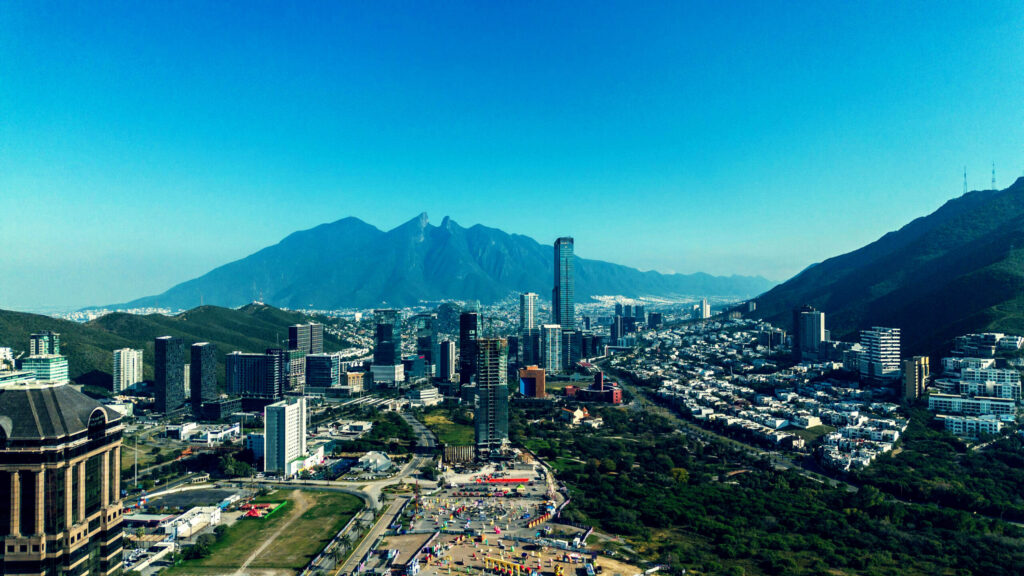
Portugal
Avg Monthly Budget
Estimated Budget: You can live comfortably in Portugal on $2,000 a month (PORTUGALBUYERSAGENT.COM)
. In Lisbon or Porto (the priciest areas), a single expat might spend around $1,700–$2,000 monthly, whereas in smaller cities or inland towns you could get by on $1,300–$1,500. For example:
Rent: €800–€1,200 (about $900–$1,300) for a one-bedroom in Lisbon’s city center; outside the big cities or in the Algarve offseason, rents can be €500–€700.
Groceries & Dining: €250 ($275) for groceries; a nice meal out costs €10–€15 in many areas.
Utilities & Transport: €150 ($165) might cover electricity, water, and internet; public transit in cities is cheap (a monthly transit pass in Lisbon is ~€40).
A thrifty single person in a smaller town could even have significant savings on $2k/month, while a couple with $2,000 total might settle in a mid-size town comfortably by living like locals.
Why It’s Affordable
Portugal is famously budget-friendly for Western Europe – in fact, it’s one of the least expensive countries in Western Europe
. Prices for everything from fresh bread to healthcare are lower than in the U.S. by 30-50%. The country’s average wages are modest, which keeps everyday expenses down. Major factors: affordable housing (especially outside Lisbon), inexpensive public healthcare (virtually free for residents, aside from small co-pays), and a culture of dining out casually without high prices. Even utilities and transportation cost less than in the U.S. Combined with a strong infrastructure and high safety rating, Portugal offers exceptional value for money – you can enjoy a European lifestyle (cafés, museums, efficient trains) at a fraction of the cost of, say, the UK or France.
Where Expats Live
Expats in Portugal have a range of appealing locales:
- Lisbon: The capital’s historic neighborhoods (Alfama, Graça) and modern areas (Expo, Alcântara) draw digital nomads and young professionals.
- Porto: A bit cheaper than Lisbon, Porto’s charming riverside and wine culture attract many expats (plus a growing tech scene).
- Algarve Region: Towns like Faro, Lagos, Portimão, and Tavira are favorites for retirees and sun-seekers – beautiful beaches, golf courses, and English is commonly spoken due to decades of British expats.
- Silver Coast & Central Portugal: Coimbra (university city), Cascais (coastal town near Lisbon), and smaller cities like Braga or Aveiro offer rich culture with lower living costs.
- Madeira & Azores: These islands have smaller expat groups, but appeal for their natural beauty and tranquility (and yes, still affordable living).
Perks
- High Quality Healthcare: Portugal’s public healthcare is accessible to expats with residency, and private clinics are affordable. Peace of mind with medical care at a fraction of U.S. cost.
- Safe and Stable: Consistently ranked among the world’s safest countries, with low crime and a laid-back lifestyle.
- English Widely Spoken: Especially in Lisbon/Algarve, many locals speak English. It’s easy to get by as you learn Portuguese.
- Rich Culture & Travel: Historic castles, Fado music, wine tours – plenty to enjoy. Plus, after 5 years of residency you can seek EU citizenship, opening travel across Europe.
- Mild Climate: Warm summers and mild winters (particularly in the south). No snow in most regions – great for those escaping harsh winters.
Things to Consider
- Rising Costs in Cities: Lisbon and Porto have seen rent increases due to popularity. Housing availability can be tight in these hotspots – you might need to compromise on size or location to meet your budget, or explore suburbs.
- Visa & Residency: Non-EU citizens must obtain a visa to stay long-term. Portugal offers a D7 “Passive Income” visa and a new Digital Nomad visa, both requiring proof of income (around €760+/month for D7, or higher for the nomad visa). Paperwork can be slow, so start early and consider hiring a local attorney for help.
- Language & Integration: Learning Portuguese is important for deeper integration, especially outside tourist areas or when dealing with bureaucracy. While many speak English, official documents and local services (like postal notices or healthcare forms) are in Portuguese.
- Taxes: If you become a tax resident, note that Portugal’s NHR (Non-Habitual Resident) program can offer tax breaks on foreign income for 10 years – worth researching if you’re retiring or working remotely.
- Weather Variations: The Algarve is sunny year-round, but northern Portugal can be rainy in winter. Homes often lack central heating – a consideration if you settle in Porto or the mountains (damp winter chill can be uncomfortable without a heater).
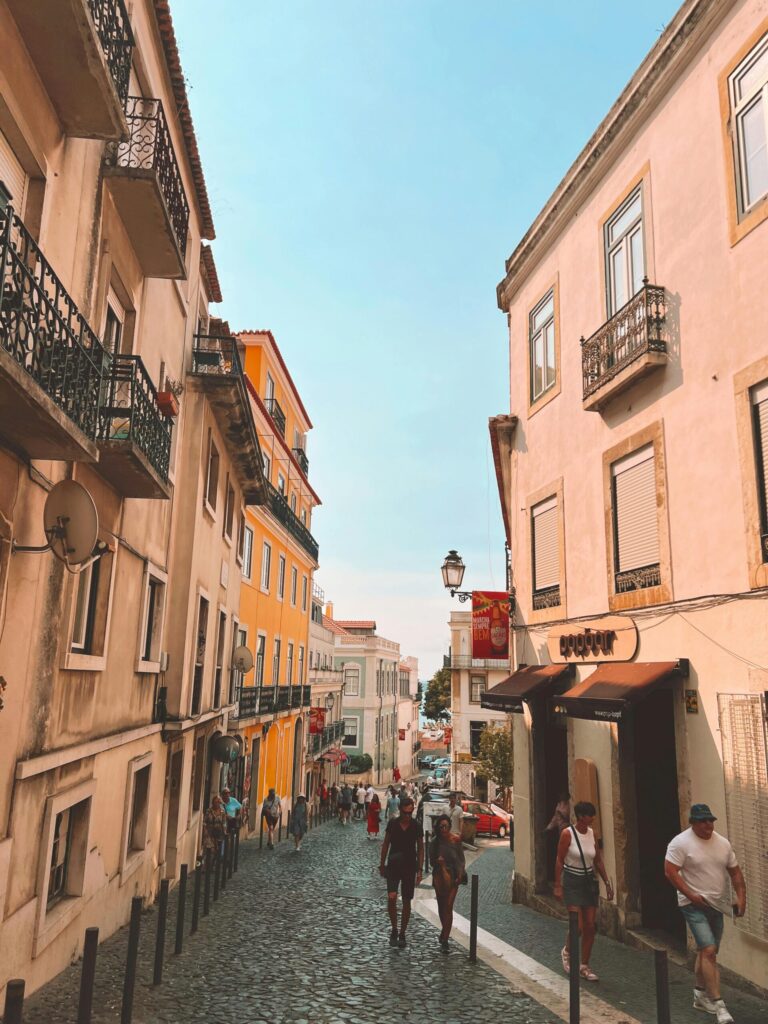
Thailand
Avg Monthly Budget
Estimated Budget: Very affordable. $2,000 per month in Thailand allows for a comfortable lifestyle – in many cases, well under that is sufficient. For a single expat:
- Bangkok: ~$1,500 can cover a modern condo (around $600 rent for a one-bedroom), $300 for food (local street food is often $2 a meal!), plus utilities, transit, and fun.
- Chiang Mai or smaller cities: Many live on $1,000–$1,200 comfortably, since rent can be as low as $300-$400 for a nice apartment and day-to-day costs are lower than the capital.
- Couples in Thailand often live well on $2,000 combined, especially outside Bangkok. In Chiang Mai, for example, a couple’s budget might be ~$1,500–$1,800 total for a pretty cushy life.
In short, you can live well in Thailand for under $2,000/month
internationalliving.com. Housing, local food, and transportation are inexpensive, leaving plenty of wiggle room in your budget.
Why It’s Affordable
Thailand’s cost of living is low thanks to inexpensive local products and services. The economy offers cheap labor and food prices; as a result, eating out is often cheaper than cooking Western meals. You’ll find that fresh tropical fruits, Thai noodles, and even weekly massages won’t break the bank. Transportation is cheap (Bangkok’s skytrain or cross-country buses/train rides cost only a few dollars). Importantly, the Thai baht, while strong regionally, still lets those with U.S. dollars or euros get more for their money. Rent is a big factor – Thailand has a huge supply of condos and houses for rent, keeping prices competitive. Overall, compared to the West, most expenses – from a haircut to high-speed internet – are a bargain in Thailand, which is why many expats significantly upgrade their lifestyle here without spending more.
Where Expats Live
Thailand hosts a diverse expat community scattered in different regions:
- Bangkok: A bustling metropolis with expats in areas like Sukhumvit (Asok, Thonglor, Ekkamai) for nightlife and amenities, or more local districts for a quieter life.
- Chiang Mai: A top choice for digital nomads and retirees alike, famed for its relaxed vibe and low costs. The Nimman area is popular among remote workers (great cafes and coworking spaces).
- Beach Areas: Phuket (large expat population enjoying island life), Koh Samui, and Krabi offer tropical island living with tourist infrastructure.
- Pattaya & Hua Hin: Pattaya is known for nightlife and a sizeable retiree community; Hua Hin is a quieter beach town favored by retirees and Bangkok weekenders.
- Isaan & Others: A smaller number of expats live in northeastern cities (Isaan region) or places like Korat and Udon Thani, often those with Thai spouses or seeking an even lower-cost, authentic Thai experience.
Perks
Warm Climate & Beaches: It’s summer all year. Enjoy tropical islands, diving, and beach sunsets as part of your routine. No winter coats needed!
Vibrant Culture & Food: From colorful festivals (Songkran, Loy Krathong) to world-renowned cuisine, Thailand offers rich experiences. You can eat out daily—delicious Thai street food is both cheap and healthy.
Healthcare Tourism Hub: Excellent private hospitals (Bangkok Hospital, Bumrungrad, etc.) with English-speaking doctors. Healthcare is high-quality and much cheaper than in the U.S., making it a top medical tourism destination.
Expat Networks: Large, active expat communities (clubs, Facebook groups) provide support and socializing opportunities. It’s easy to meet others, whether you’re a retiree in Chiang Mai or a young teacher in Bangkok.
Convenience: Modern amenities abound. 7-Eleven stores on every corner, efficient delivery apps, cheap motorbike taxis – daily life is surprisingly convenient. Plus, Thailand is a great travel hub for exploring the rest of Asia on a budget.
Things to Consider
Visa Requirements: Navigating Thai visas is probably the biggest challenge. Thailand doesn’t grant automatic long stays to non-retirees. Options include education visas (study Thai language), business or volunteer visas, the retirement visa (age 50+ with financial proof), or the new 10-year Long Term Resident visa for certain professionals. Many digital nomads do border runs or use agency services to extend tourist visas. It’s doable, but you must stay on top of renewals and rules.
Language: English is spoken in tourist areas and by many younger Thais in cities, but the language barrier can be real upcountry. Learning basic Thai phrases will earn you smiles and make life easier (even if the tones are tricky!).
Climate & Environment: It’s hot and humid most of the year. The April–May heat can be intense, and the rainy season (roughly June–Oct) brings heavy monsoons. City pollution (smog in Bangkok, seasonal “burning season” smoke in Chiang Mai) is a concern for some.
Cultural Differences: Thai culture is gentle and non-confrontational – losing your temper is frowned upon. You’ll need to adapt to local norms (like removing shoes, respectful dress at temples, and the strict lese-majeste laws about the monarchy). What might be a minor gripe back home could be a sensitive issue in Thailand.
Infrastructure Gaps: While cities are modern, things like sidewalks or disability access can be lacking. Internet is generally fast in urban areas, but power outages happen occasionally, especially on islands. Also, driving standards are different – road accidents are a risk, so many expats avoid motorbikes or invest in good travel insurance.
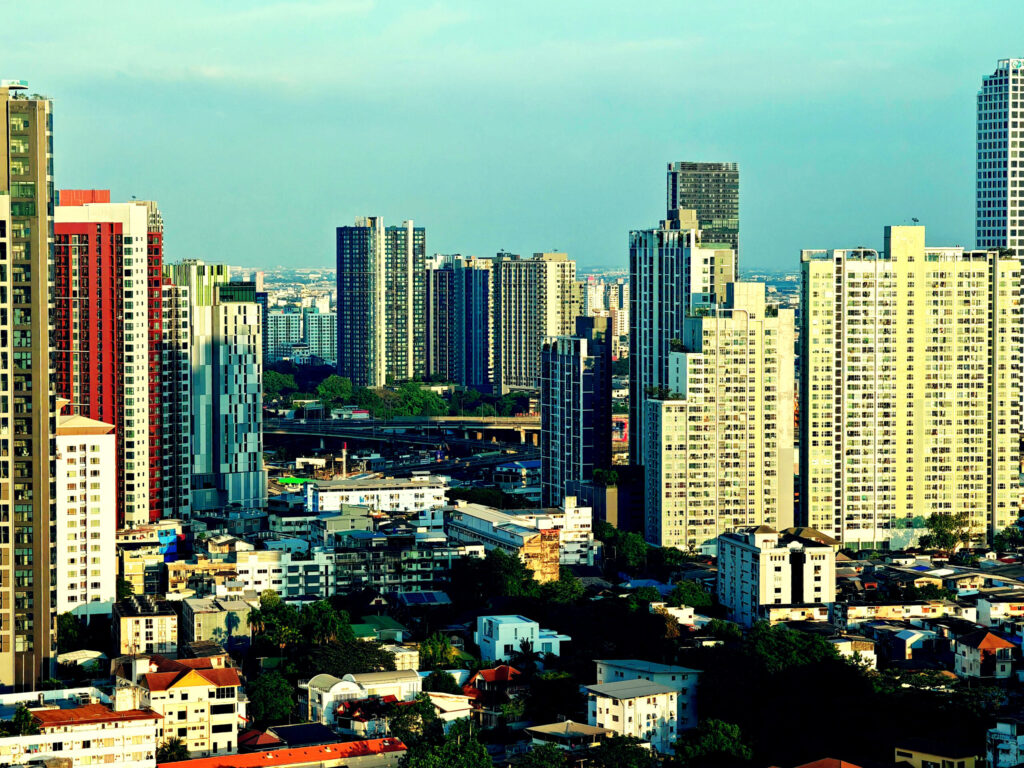
Colombia
Avg Monthly Budget
Estimated Budget: An individual can live well in Colombia on $1,200–$1,500 per month, and many retirees report even lower spending in smaller cities. $2,000 a month is more than enough for a very comfortable life (even for a couple) in most Colombian locales
brighttax.com. For instance:
- Rent: $400-$700 for a modern 1-2 bedroom apartment in a good neighborhood (Medellín’s upscale El Poblado area might be $600+, while smaller cities can be <$400).
- Utilities & Internet: $100 (utilities are subsidized on a stratified scale; high-end apartments pay more, rural homes pay less). Internet/mobile is cheap ($20-30).
- Groceries: $150 can cover plenty of fresh fruits, veggies, and meats from local mercados. Colombia’s produce is abundant and inexpensive.
- Dining & Entertainment: $200 gives you several nice dinners out (a typical Colombian lunch menu might cost $3-$5). Domestic beers are ~$1.50, and even upscale restaurants are reasonable.
- Healthcare Insurance: Private health insurance for an expat might run $40-$70/month, or you can join the public EPS health system for similarly low rates.
All told, a frugal single person could live on ~$1,000 in a smaller town, while $1,500 provides cushion in cities. U.S. retirees generally live comfortably on $1,500 to $2,000 USD per month in Colombia( brighttax.com.)
Why It’s Affordable
Colombia’s cost of living is low primarily due to the exchange rate and local economy. The Colombian peso has been relatively weak, so dollars convert to a lot of pesos (meaning imported goods might be pricey, but local goods are extremely cheap). Housing costs are modest – even in big cities, there’s ample supply of apartments keeping rents down. Local transportation (buses, metro, taxis) is very inexpensive. Services (like hiring a cleaning lady, or getting a haircut for $5) are affordable thanks to lower labor costs. Additionally, Colombia produces much of its own food (coffee, fruits, beef), so groceries are cheap for high quality. Outside of a few upscale enclaves, day-to-day prices (from museum tickets to a bag of arepas) cater to local incomes, which makes the country a bargain for expats with foreign income.
Where Expats Live
Colombia’s expat and retiree population has grown over the past decade. Popular spots include:
- Medellín: Often the first choice – “City of Eternal Spring” climate, modern infrastructure. Expats favor El Poblado, Envigado, Laureles (safe, walkable areas with restaurants and parks).
- Bogotá: The capital has a sizeable international community (diplomats, teachers, remote workers). Zona Norte (North Bogota neighborhoods like Usaquén, Chicó, Zona T) are more upscale and popular with expats, offering Bogotá’s best dining and shopping.
- Cartagena: A historic coastal city; the charming walled city and nearby Bocagrande have expats (though it’s more touristy and can be hotter and costlier than inland cities).
- Coffee Region: Towns like Pereira, Manizales, or Armenia – smaller cities with pleasant weather and a slower pace. Expats who seek mountain scenery and tranquility are drawn here; a growing community is in Salento (a quaint town known for coffee and green hills)brighttax.com.
- Others: Cali (salsa capital, warm climate, a few expats enjoy its authenticitybrighttax.com), Barranquilla (coastal city, famous carnival, some expat presence), and small pueblos like Villa de Leyva or Santa Marta’s Taganga – though these are more off-the-beaten-path for niche expats or those married into Colombian families.
Perks
Spring-like Weather: Many parts of Colombia enjoy mild spring temperatures year-round (thanks to altitude). No need for heating or AC in cities like Medellín – big savings and comfort.
Welcoming People & Culture: Colombians are known for their warmth and hospitality. Expats often mention how friendly and helpful locals are, eager to include newcomers in family gatherings and community events.
Affordable Healthcare: Colombia’s healthcare is ranked among the top in Latin America. Major cities have modern hospitals and clinics; medical insurance and out-of-pocket costs are low. It’s feasible to see specialists or get procedures at a small fraction of U.S. prices (some expats even opt for elective surgeries or dental work here).
Retirement Visa Ease: Securing residency as a retiree is straightforward – the pensionado visa only requires about $970/month in income (3x Colombia’s minimum wage), Source: brighttax.com, making it very accessible. After 5 years you can even apply for permanent residency or citizenship. There’s also a new digital nomad visa for remote workers.
Diverse Travel Experiences: From Caribbean beaches and Amazon rainforests to Andean mountains, Colombia is a beautifully diverse country. Living there means endless weekend trip options – coffee farm stays, colorful colonial towns, hiking Cocora Valley’s wax palms – all on a shoestring budget by Western standards.
Things to Consider
Safety: Colombia has made huge strides in safety since the 90s, but it still has areas of caution. Petty crime (pickpocketing, phone snatching) can be an issue in big cities – you’ll need to practice city smarts (don’t flash valuables, use registered taxis or ride-shares at night, etc.). Some rural parts of the country remain off-limits due to sporadic crime or illicit activity, but expats rarely have reason to go there. Research neighborhoods – for example, in Medellín, some comunas on the hills are less safe for outsiders, whereas expat-frequented areas are fine. Overall, tens of thousands of expats live peacefully in Colombia, but stay aware and adapt to local safety advice.
Spanish Language: English is not widely spoken outside of tourist spots and high-end establishments. To truly thrive (and handle necessities like banking, dealing with handymen, etc.), you’ll need to learn some Spanish. Embrace it – taking classes or practicing with locals will greatly improve your experience.
Bureaucracy: Expect some bureaucracy when dealing with visas, local banks, or government paperwork. Processes can be slow or require multiple visits. Many expats hire facilitators or lawyers to help with visa applications or buying property. It’s also common to need lots of copies of documents, so keep digital scans of everything.
Infrastructure & Utilities: In major cities, you’ll have all modern conveniences, though traffic can be congested (Bogotá’s traffic is notorious). Power, water, and internet are generally reliable, but in smaller towns outages can happen occasionally (especially during heavy rain season or in remote areas). Also, hot water isn’t standard everywhere – some apartments use only electric shower heaters (“suicide showers”), something to note during house-hunting.
Altitude & Climate: Remember, cities like Bogotá (8,660 feet elevation) can leave newcomers short of breath initially and have cooler weather (you might need a jacket). In contrast, coastal cities are hot and humid. Choose your city based on climate preference, and be prepared for the differences – for example, no A/C in Medellín (usually not needed), or using sunscreen religiously near the equator.
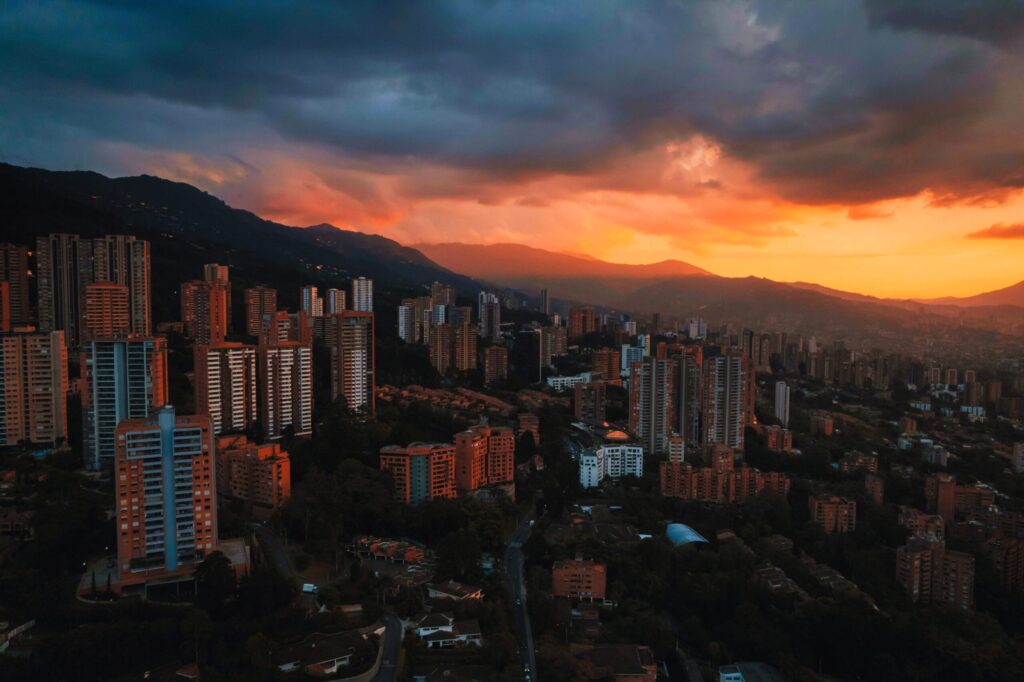
Vietnam
Avg Monthly Budget
Estimated Budget: Vietnam is one of Southeast Asia’s most affordable countries. A single expat could live modestly on $800/month, and around $1,200–$1,500/month provides a very comfortable lifestyle in cities like Hanoi or Ho Chi Minh City. alittleadrift.com.
Here’s a breakdown:
- Rent: $300–$600 for a modern one-bedroom in Hanoi or Ho Chi Minh City (HCMC). In smaller cities (Da Nang, Nha Trang) or shared housing situations, you might pay $200 or less.
- Food: $150–$250 for groceries and frequent local dining. Street food meals cost $1–$3. Even Western restaurants are inexpensive ($5–$10 per meal).
- Utilities: $50 (electricity can spike if you use A/C heavily; otherwise, expect lower). High-speed internet is around $10-$15.
- Transportation: $50 can cover routine Grab (ride-hail) bike rides and the occasional bus. Owning a scooter is common and fuel is cheap (filling up for a couple of dollars).
- Extras: $100-$200 for entertainment, co-working space fees (if needed), and personal items. A beer is often under $1; a movie ticket ~$4. Indulging in weekly massages or weekend trips up your budget but are still affordable.
In summary, many expats report monthly costs between $800 (thrifty) and $1,400 (mid-range) alittleadrift.com. With $2,000 a month, you could live very well in Vietnam, possibly including domestic travel and upscale conveniences.
Why It’s Affordable
Vietnam’s low cost of living stems from its developing economy and local consumer habits. Local salaries are modest, which keeps prices of food, public transport, and services low. The Vietnamese dong currency tends to be weak against Western currencies, making exchange rates favorable. Many essentials are produced locally – think tropical fruits, rice, coffee, clothing – reducing costs. Apartments are abundant (thanks to rapid construction in cities), and usually come at a fraction of Western rents. Importantly, Vietnam has a culture of street vendors and open-air markets, which means competition and low profit margins keep prices for everyday goods very cheap. A bowl of pho on a plastic stool by the roadside is not just a cultural experience, it’s a budget one. Even things like mobile data are very cheap ($5 for a generous monthly plan). In short, living like a local – eating Vietnamese cuisine, shopping at markets, using scooters – can make your expenses shockingly low, while even “luxury” options (fancier restaurants, new condos) are often half or one-third what you’d pay in the West.
Where Expats Live
Vietnam’s expats cluster primarily in a few key cities and regions:
- Ho Chi Minh City (Saigon): The largest city, very popular with business people, English teachers, and digital nomads. Expats often choose District 2 (Thảo Điền, a leafy suburb with international schools and cafes), District 7 (Phú Mỹ Hưng, modern with parks and malls), or District 1 (downtown, if you love city buzz). Each area has its own vibe and expat social scene.
- Hanoi: The capital in the north has a vibrant cultural scene. Expats here include teachers, NGO workers, and remote professionals. Tây Hồ (West Lake) area is known for its expat community – you’ll find international restaurants and a lakefront path popular with joggers.
- Da Nang: A growing coastal city with beautiful beaches and a laid-back feel. In recent years, remote workers have flocked here for the sun and surf. It’s smaller and quieter than HCMC/Hanoi, but has a decent expat network. Nearby historic Hoi An also has a small expat community (some entrepreneurs, tailors, resort workers) – it’s quieter and very picturesque.
- Nha Trang: A beach city popular with Russian and other expats, known for scuba diving and island hopping.
- Dalat: A cooler, highland town with pine forests – a handful of expats (often retirees or those seeking cooler climate) live here for its almost European feel and pleasant weather.
- Others: Hai Phong (industrial port city), Vung Tau (beach town near HCMC), and Mui Ne (kite-surfing haven) each have small expat circles, often retirees or those married locally.
Perks
Amazing Cuisine & Coffee: Vietnam offers one of the world’s great cuisines – pho, banh mi, fresh spring rolls, and so much more – often for just a couple of dollars a dish. Every region has its specialties. Plus, the coffee culture is fantastic: spend your afternoons working or reading in cafes enjoying rich Vietnamese coffee for $1 a cup.
Strong Expat Networks: There are active Facebook groups, meetups, and co-working communities in cities like Saigon, Hanoi, and Da Nang. It’s easy to connect with others, whether you’re into startup tech, teaching, or just socializing at weekly trivia nights. You’ll quickly find your tribe.
Beautiful Travel Opportunities: Living in Vietnam means you can easily explore its diverse landscapes. Weekend trip to Ha Long Bay? A quick flight ($50 or less) to Da Nang to lie on the beach? Trekking in Sapa’s rice terraces or motorbiking the Hai Van Pass? All accessible and affordable. Vietnam is a compact country with inexpensive domestic travel, so expats often see a lot of it.
Low Crime & Friendly Locals: Violent crime is very uncommon. Vietnam is generally safe; most locals are friendly or curious towards foreigners. You’ll often be greeted with a smile or a “Hello!” from kids. The culture emphasizes community and hospitality – many expats make local friends and get invited to Vietnamese celebrations (weddings, Tet holiday feasts).
Healthcare & Wellness: Basic healthcare is inexpensive – many medicines are available over the counter cheaply. There are international clinics in big cities, and private hospitals in Hanoi/HCMC that are quite modern (costs are moderate, so some expats pay out of pocket; others get international insurance). Additionally, wellness is within reach: yoga classes, massages ($10 for an hour is common), and even private trainers are affordable.
Things to Consider
Language Barrier: English is not as widely spoken in Vietnam as in some other expat hubs. In city centers and tourist industries you’ll find English speakers, but day-to-day tasks (like dealing with a landlord, asking for directions in a non-touristy town) might require some Vietnamese or a translation app. The Vietnamese language is tonal and can be challenging, but learning even basic phrases greatly helps. Fortunately, younger urban Vietnamese increasingly know some English, and people are generally patient with language gaps.
Visa Restrictions: Vietnam’s visa rules have been in flux. As of 2023, they introduced a 90-day e-visa for tourists, which is great, but there isn’t a straightforward long-term residency for retirees or remote workers yet (no official digital nomad visa). Many expats do “visa runs” (fly to a nearby country and back) or find work sponsorship (like teaching English) to stay long-term. Always check the latest visa options – they do evolve, and overstaying visas is heavily fined.
Climate & Environment: Vietnam’s climate ranges from hot tropical in the south to a distinct cooler season up north. HCMC is hot year-round with a long rainy season (expect daily downpours in monsoon months). Hanoi has hot summers but can get surprisingly cool in winter (50s °F and houses often lack heating). The humidity and heat might be tough if you’re not used to the tropics. Also, big cities face pollution issues – air quality in Hanoi/Ho Chi Minh can be poor, and rivers/beaches may have litter in some areas. Consider buying an air purifier for your apartment and be mindful of environmental quality in your chosen area.
Traffic & Transportation: Vietnamese traffic, especially the swarms of motorbikes, is legendary. Crossing the street in Saigon or Hanoi is an acquired skill (walk slowly and predictably, and the bikes will flow around you). Many expats choose to ride motorbikes – which is economical and fun, but comes with safety risks. Traffic accidents are a leading concern; it’s wise to wear helmets and drive cautiously. Alternatively, using Grab (Uber-like service for bikes and cars) is cheap and avoids you having to drive. Public buses exist but can be confusing until you learn the routes.
Infrastructure & Services: Vietnam is developing fast, but there are quirks. Power outages happen occasionally, especially in smaller towns (having a backup battery for Wi-Fi can help if you work online). Internet is generally fast, but Vietnam’s undersea internet cables do break sometimes, slowing international connectivity for weeks until repaired. Also, customer service is not always up to Western expectations – things might not get fixed as promptly, or “yes” doesn’t always mean yes due to saving face. Patience and a sense of humor go a long way when navigating banking, utilities, or apartment issues.
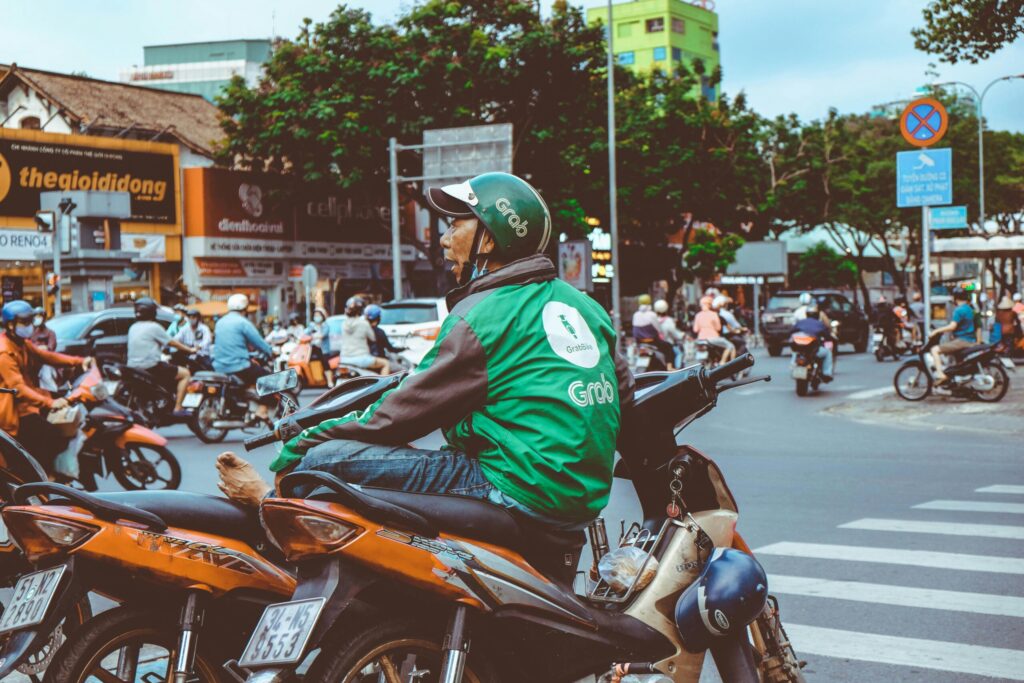
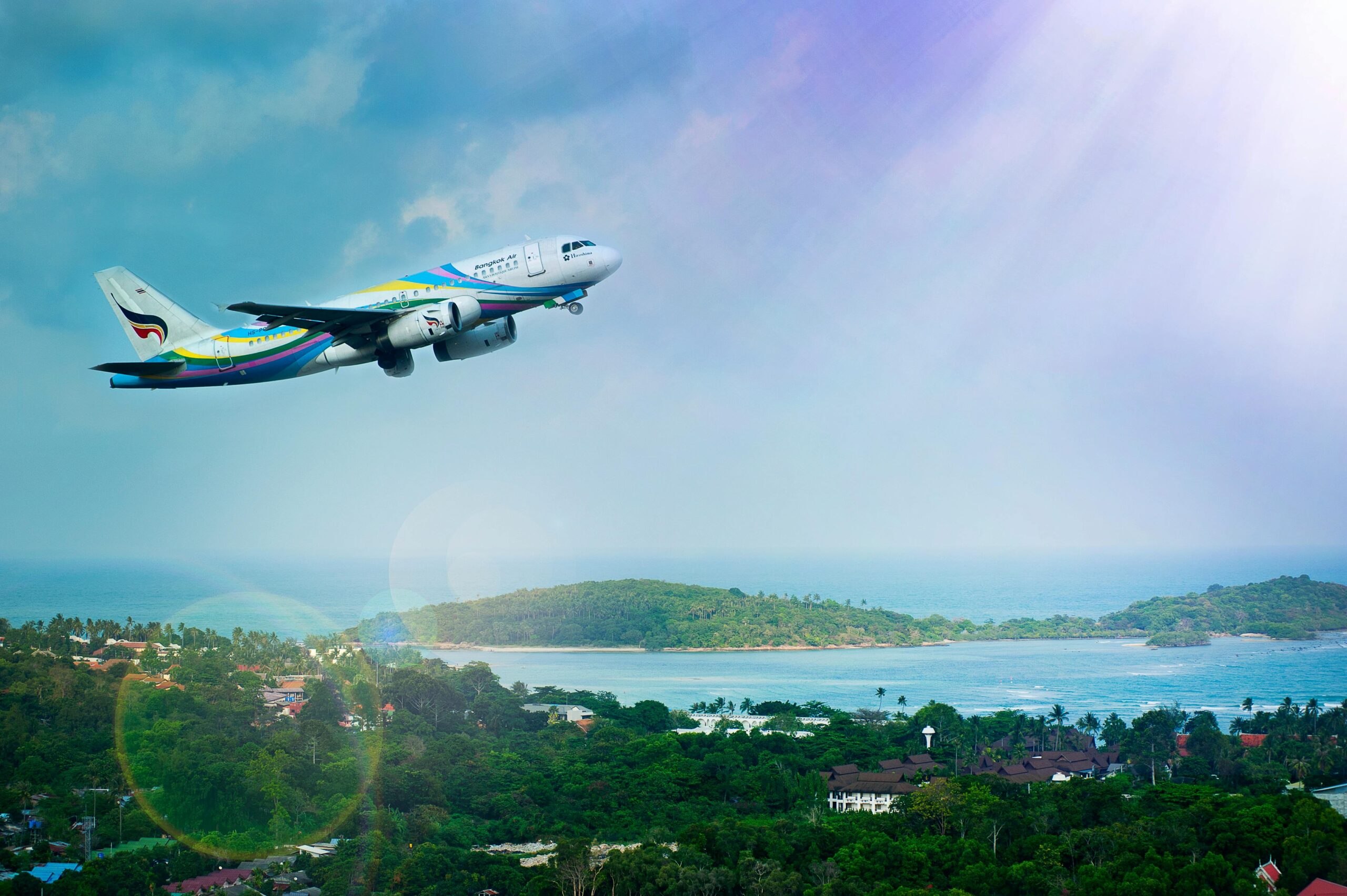




+ There are no comments
Add yours